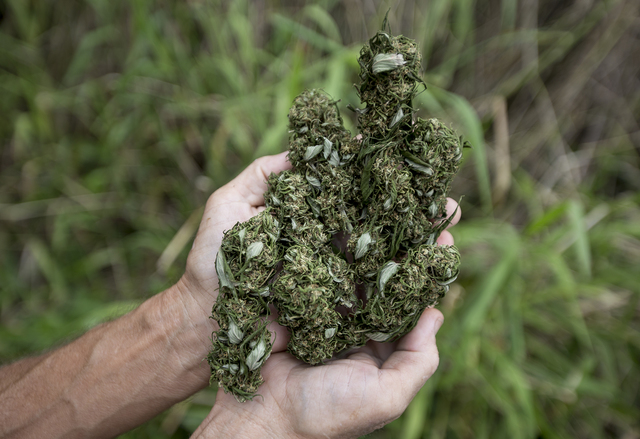HONOLULU — Hawaii has announced it will allow medical marijuana dispensaries to begin growing pot as early as Feb. 1, which comes after several months of delays.
HONOLULU — Hawaii has announced it will allow medical marijuana dispensaries to begin growing pot as early as Feb. 1, which comes after several months of delays.
One of the holdups has been the state not having a federally required software system to track the product from seed to sale. But the Hawaii Department of Health said Wednesday it’s finally ready to go online with its tracking system.
The state Legislature legalized medical marijuana dispensaries in 2015 and awarded eight licenses for the businesses statewide last year. The dispensaries were initially expected to begin sales in July.
Health officials said four licensees — Manoa Botanicals and Aloha Green on Oahu and Maui’s Pono Life Sciences and Maui Grown Therapies — have indicated they are ready to begin growing. It can take between three and five months for plants to mature.
Brian Goldstein, founder and CEO of Manoa Botanicals, told the Honolulu Star-Advertiser his company expects to begin cultivation next week but is still unsure when it will open for business.
“It is exciting, but there’s some critical milestones ahead of us,” he said. “We’re not going to be able to sell until a lab is certified, and there is uncertainty as to when that’s going to happen.”
Teri Gorman of Maui Grown Therapies said her dispensary’s production facility needs one more inspection from the state before it receives approval to grow cannabis.
“We are certainly happy and relieved that we’ve gotten to this point,” Gorman said. “Certainly, cultivation’s a major step and we’re very thankful for that, but that doesn’t mean that it’s over.”
The DOH said it is reviewing two applications from testing laboratories seeking to open on Maui and Oahu. The department also anticipates the integration of the seed-to-sale tracking system with the patient registry will take two to three months.
There were 15,334 medical marijuana patients registered with the state at the end of 2016, with more than 40 percent of them on the Big Island.

